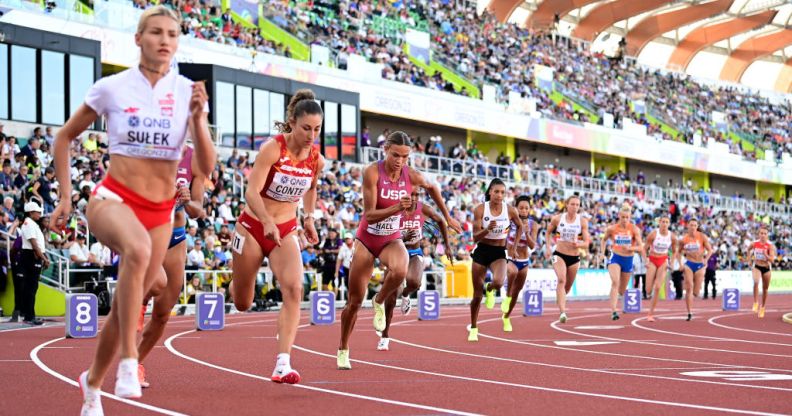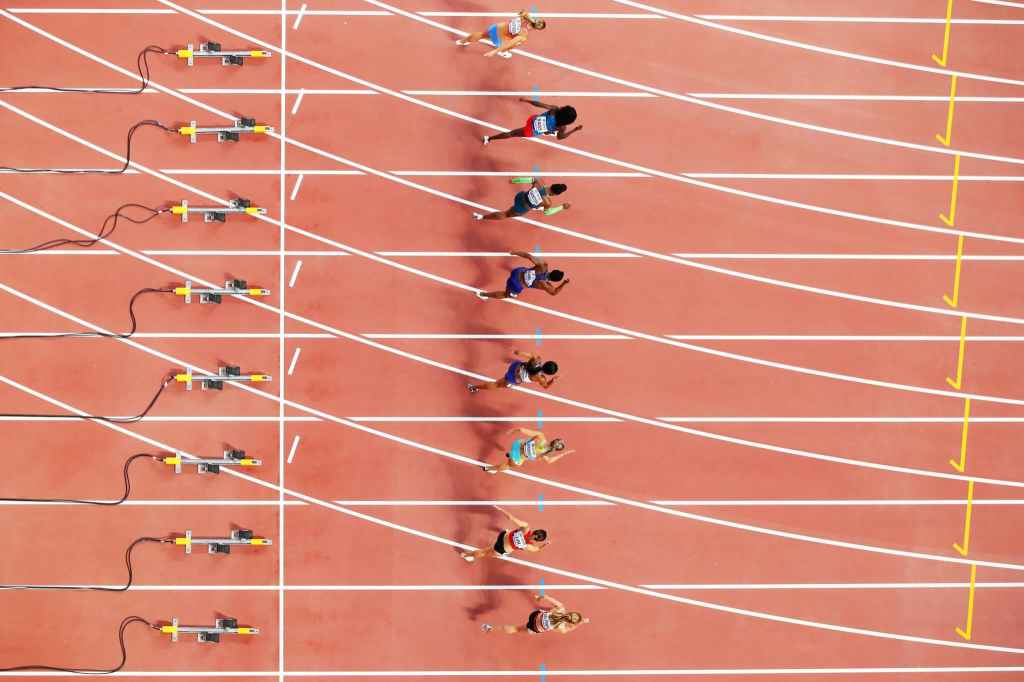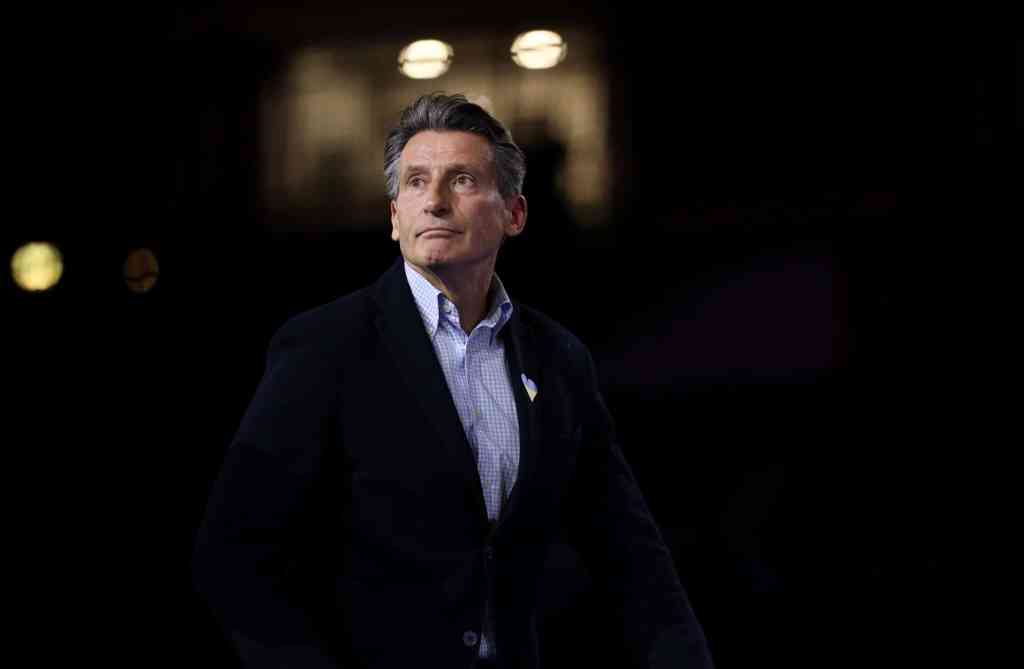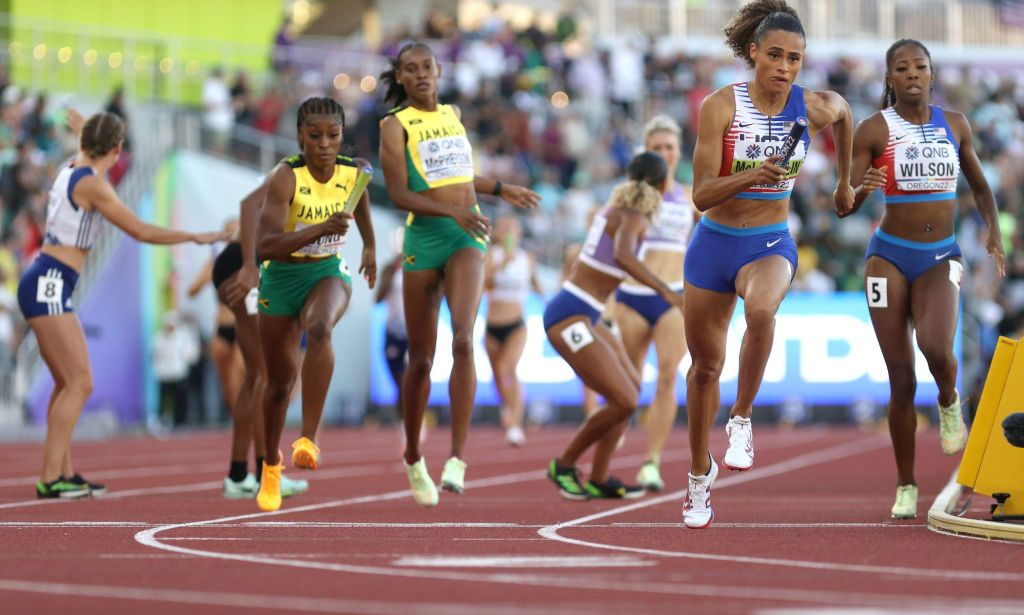World Athletics president defends trans participation in local sports events

World Athletics president Sebastian Coe has defended trans athletes participation in local sporting events. (Hannah Peters/Getty)
Sebastian Coe, the President of World Athletics and former Chairman of the British Olympic Association, has defended trans participation in local sports events.
Last year, World Athletics announced tougher restrictions on elite-level trans athletes.
Coe confirmed in March 2023 that trans women who transitioned after puberty would not be allowed to participate in women’s elite competitions
However, Coe draws the line at local events, insisting that trans athletes should not be “denied the mental and physical” benefits of running at sports events in their communities.

In a new interview with the Up Front podcast, Coe said that, at an elite level, the matter of trans participation in sport is “very clear cut”. But at a grassroots level, the Nike ambassador is far more accepting, and even encouraging of trans athletes competing in the categories that align with their gender identity.
He clarified: “The transgender issue is only at [an] elite level. I’m not saying trans people shouldn’t be able to compete at a local level – we don’t want them to be denied the mental and physical [benefits].”
Coe’s comments come as anti-trans activists continue to push for trans athletes to be banned from sporting events at all levels.
Just last year, a bizarre protest was staged at Manchester’s Parkrun event after a trans woman was allowed to participate – even though it was a non-competitive run that was open to everyone to help “as many people as possible to feel part of a real local community.”
Similarly, there was an inexplicable uproar last month when a cisgender cyclist Kristen Chalmers placed third in an amateur cycling competition, behind two transgender women.

Although Chalmers had no issue with placing third, and argued that it was “ridiculous to sacrifice other people getting to have fun in a sport that they love” so that she could be named state champion, anti-trans activists lashed out on social media.
Much like World Athletics, the world’s cycling governing body, Union Cycliste Internationale (UCI) updated its policies to restrict transgender athletes at an elite level.
World Athletics’ decision to exclude trans athletes last year was met with outrage online, with social media users accusing the sports governing body of enacting a “discriminatory policy based on artificial frenzy.”
In his recent interview, Coe explained why he and World Athletics decided to restrict elite trans female athletes.
“If you and I had been sitting here even two years ago we would not have been having a discussion about transgender [people] in sport,” he said.
“It’s a relatively new issue. I had to follow the science and nobody could tell me that by having a [hormone] suppressant that you could close that gap over one year, two years, five years, and that’s when I went, ‘right’. The issue was, for me, a very clear-cut judgment.”

Coe suggested that, if transgender women who transitioned after going through puberty could compete freely at an elite level, a cisgender female Olympic athlete would never win a gold medal again.
“The decision ultimately was based on one very simple proposition,” he said.
“I am elected to protect the female category and if I don’t do that, no woman will ever win another [medal] again.”
Offering an example, Coe said that, while raising his four children, he remembered his two daughters “kicking the butts of their brothers” in primary school, but when “puberty kick[ed] in”, they couldn’t keep up.
When Coe first announced that trans women would be restricted from elite female competitions, he noted that “the science is insufficient to justify maintaining testosterone suppression for transgender athletes.”
Coe added at the time that the decision came after a consultation with 40 member federations, athletes, and trans organisations.
Of those consulted, he had said: “Many believe there is insufficient evidence that trans women do not retain advantage over biological women, and want more evidence that any physical advantages have been ameliorated before they are willing to consider an option for inclusion into the female category.”
However, Coe assured those concerned that World Athletics would establish a working group to conduct further research into future transgender eligibility.
How did this story make you feel?

